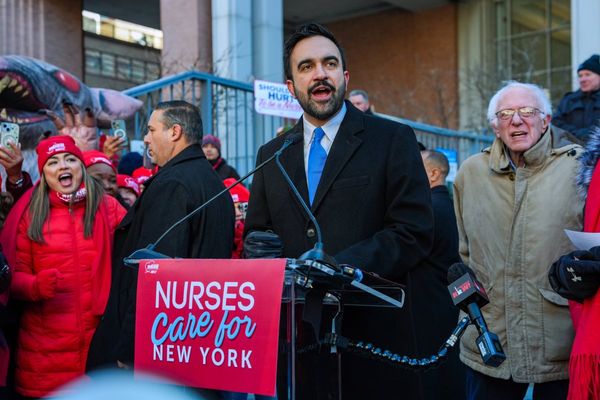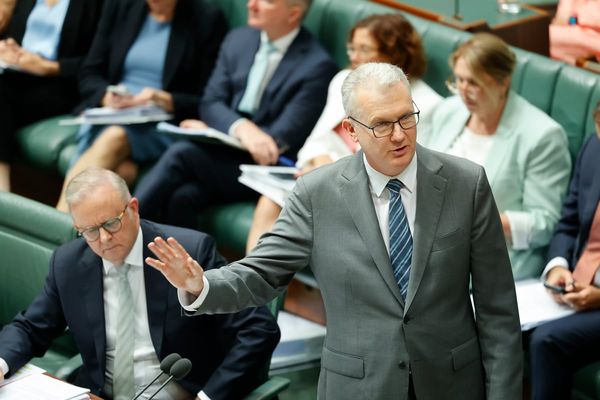
Last Thursday, Victoria’s Independent Broad-based Anti-corruption Commission (IBAC) released a damning report into property developer John Woodman’s inappropriate payments to local government councillors, former Labor MPs and Liberal Party state candidates in exchange for support for planning proposals that would have benefited him and his business associates.
The main proposal Woodman lobbied for would have rezoned land in Cranbourne from industrial to residential use. The City of Casey estimated the increase in land value would have been worth $35 million for the two existing landowners.
This is cartoonishly dodgy stuff, with councillors referring to Woodman as a “bottomless ATM”, and former MPs delivering bags and suitcases of cash to Casey councillors.
Yet thousands of homeowners benefit from the same kind of windfall profits each year — not via corruption, but by sheer luck. When a house is rezoned so it can be redeveloped, the homeowner usually banks the extra value simply by owning in the right place at the right time.
IBAC has suggested various reforms to stamp out planning-based corruption, including stripping councils’ planning powers. But perhaps we should address the daylight robberies as well as the covert ones.
Look up. Is it a bird or is it a crane?
Don’t get me wrong — we need to up-zone large tracts of our major cities to allow more residential development, free lunch or not. Supply constraints are a major source of the housing crisis, and relaxing height restrictions can help deliver more supply and lower costs.
Those with stable housing cannot imagine how desperately we house-seekers need further options amid record low vacancy rates. I’m searching for a new rental property as my landlord looks to renovate. Schlepping across Melbourne to a dozen inspections only to face rejection after rejection — and worse, radio silence — has been thoroughly dispiriting.
Competition is fierce and landlords and their agents know it. One of your referees can’t take their call right now? Next! Why wait when they’ve got dozens of other applicants? We’re lucky we can housesit for holidaying family while searching, otherwise my partner, a charity worker who teaches students about housing insecurity, would start bringing some life experience to the classroom.
Domain reported last week that capital city home prices are climbing again, and rising rents show no signs of abating. And signs the Reserve Bank might ease up on interest rates provide cold comfort. Landlords can only pass on additional mortgage costs when they’re confident tenants won’t find a better deal elsewhere — and many outright owners will jack up their prices for the same reason. With the vacancy rate tipped to remain low for some time, the system is primed for profiteering by our reliably rapacious landed gentry.
In this context, I’d stomach more lucky homeowners enjoying an untaxed lift (on top of their already undertaxed capital gains) if it meant some would sell to developers who build more dwellings. And ultimately, a far larger source of unearned capital gains is housing scarcity, which keeps house prices high.
But primed for compromise by my house hunt, perhaps I’m settling for second best…
Growing the pie, retaining a slice
An even better solution would be imposing windfall gains taxes as we expand building rights. Such taxes return to state coffers some of the value homeowners derive from government action. The owners of up-zoned properties are billed for the assessed lift of their asset’s value, which they can defer until they eventually sell the property.
The Victorian government introduced a windfall gains tax on July 1 worth 50% to 62.5% of value lift, but residential properties are exempted. The NSW government is introducing a housing and productivity contribution on developers on October 1 which encompasses residential development, but it’s charging only $10,000 to $12,000 per lot. Conversely, the ACT has a much older and more extensive system of value capture, levying a one-off payment of 75% on value lifts since 1971.
Housing think tank Prosper Australia found that had such a comprehensive windfall tax applied to properties in Melbourne’s Fishermans Bend when it underwent a major redevelopment, the revenue “would likely cover the public investment needed for Fishermans Bend multiple times over, and is of a similar magnitude to Victoria’s $5.3 billion social housing investment of 12,000 homes”.
Our two most populous states await large-scale planning reforms that are slated to allow more inner-suburban density, particularly around transport hubs, and slow urban sprawl. As NSW Premier Chris Minns recently said, “We have to go up … not out.” Workers commuting multiple hours to and from CBDs, and the flora and fauna in the crosshairs of expanding peri-urban estates, would be likely to agree.
Providing more well-located housing options is good in itself. But if state governments could also capture some of the value they’ll create and reinvest it in additional social housing, the impact would be multiplied. Unless designed poorly, such levies are very unlikely to deter builders from breaking ground.
What’s better for house-seekers than a lot more private housing? A bunch more public housing to boot.
Should landlords have to pay a windfall tax? Let us know by writing to letters@crikey.com.au. Please include your full name to be considered for publication. We reserve the right to edit for length and clarity.







